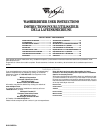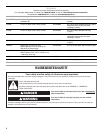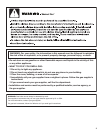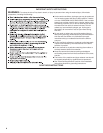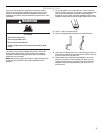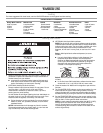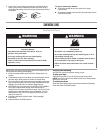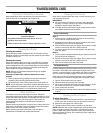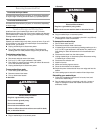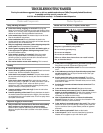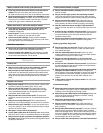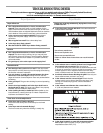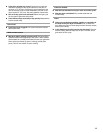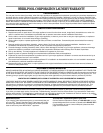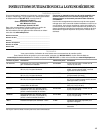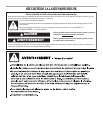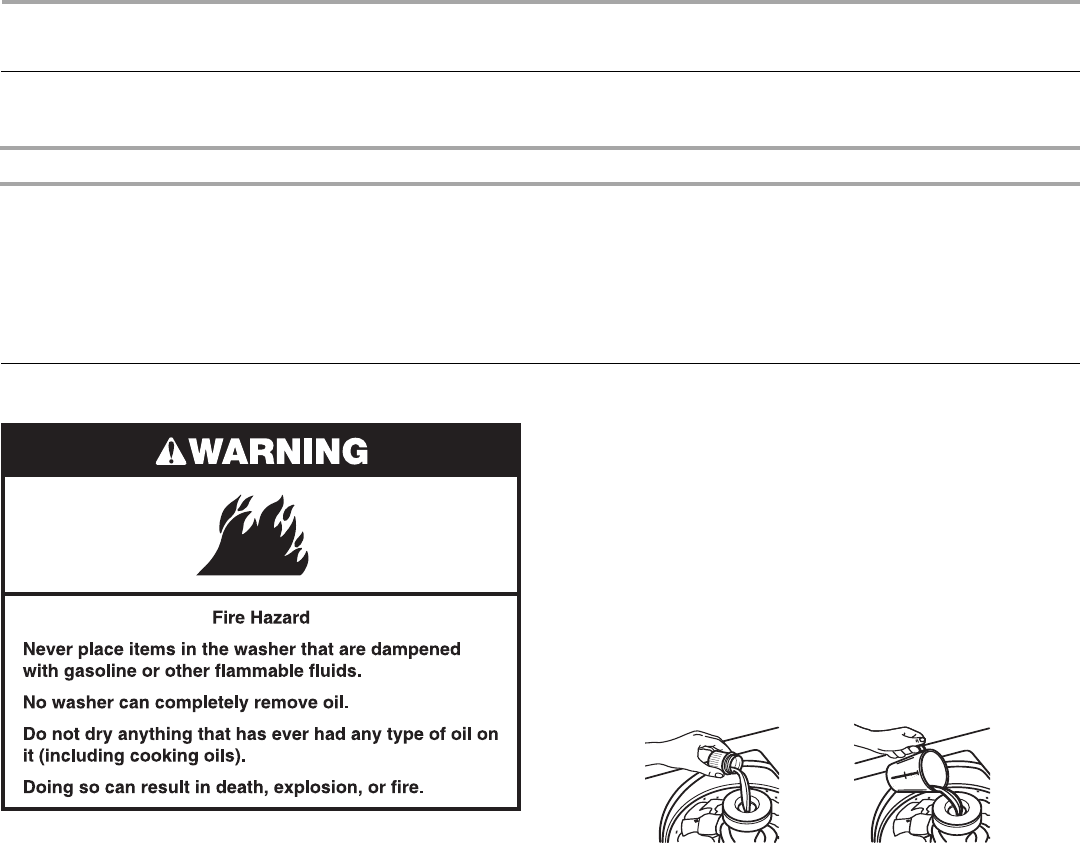
6
WASHER USE
Loading
For these suggested full-sized loads, set the LOAD SIZE selector to the highest load size setting.
LARGE CAPACITY WASHERS
Heavy Work Clothes
2 pair of pants
3 shirts
3 jeans
1 coverall
Mixed Load
2 double sheets
4 pillowcases
6 T-shirts
6 pair of shorts
2 shirts
2 blouses
6 handkerchiefs
Towe ls
8 bath towels
8 hand towels
10 washcloths
1 bath mat
Delicates
2 camisoles
4 slips
6 undergarments
2 sets of sleepwear
1 child’s outfit
Permanent Press
1 double sheet
1 tablecloth
1 dress
1 blouse
2 pair of pants
3 shirts
2 pillowcases
Knits
2 pair of pants
2 blouses
4 shirts
4 tops
2 dresses
Starting Your Washer
1. Measure detergent and pour it into the washer. If desired, add
powdered or liquid color safe bleach. Drop a sorted load of
clothes loosely into your washer.
■ Load evenly to maintain washer balance. Mix large and
small items. Items should move easily through the wash
water. Overloading can cause poor cleaning.
2. (OPTI
ONAL) Add liquid chlorine bleach.
Always measure liquid chlorine bleach. Do not guess. Do not
u
se more than 1 cup (250 mL) for a full load. Follow
manufacturer’s directions for safe use. Use a cup with a
pouring spout to avoid spilling.
Let the washer fill and begin agitating the load. Add bleach to
the
wash cycle so it can be removed in the rinse cycle. Pour
bleach around the agitator, not directly onto the load.
■ Follow directions on the care labels. Do not use chlorine
bleach on wool, silk, spandex, acetates, or some flame-
retardant fabrics.
NOTE:
Undiluted bleach will damage any fabric it touches.
The damage appears as rips, holes, tears, or color loss and
may not show up until several washings later.
3. (OPT
IONAL) Add liquid fabric softener.
NOTE: Do n
ot spill or drip any fabric softener onto the clothes.
Undiluted fabric softener can stain fabrics. Always dilute fabric
softener with warm water. Too much fabric softener can make
some items (diapers and towels) nonabsorbent. If this
happens, do not use it in every load, or use less of it in each
load.
Style 1: With liquid fabric soften
er dispenser (on some
models)
■ Use only liquid fabric softener in this dispenser. Pour
measured liquid fabric softener into the dispenser.
Softener is added automatically during the rinse portion
of the cycle. Dilute liquid fabric softener by filling the
dispenser with warm water until liquid reaches the
crossbar in the dispenser opening.
Style 2: Without liquid fabric softener dispenser (on some
models)
■ In the final rinse ONLY, add fabric softener that has been
diluted with ½ to 1 cup (125 to 250 mL) warm water.
4. Close the
washer lid. Washer will not agitate or spin with the
lid open.
5. T
urn the WATER LEVEL selector to the correct setting for your
wash load and the type of fabric being washed. You may
change the load size or water level selection after the washer
has started filling by turning the selector to a different setting.
6. Set the TEMPERA
TURE selector to the correct setting for the
type of fabric and soils being washed. Use the warmest water
safe for fabric. Follow garment label instructions.
NOTE: In wash wa
ter temperatures colder than 60ºF (15.6ºC),
detergents do not dissolve well. Soils can be difficult to
remove. Some fabrics can retain wear wrinkles and have
increased pilling (the formation of small lint-like balls on the
surface of garments).



